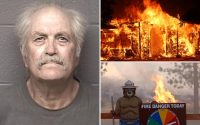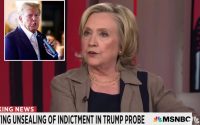Mayoral nominee vows to use drones to destroy this Philadelphia drug market
PHILADELPHIA — David Oh is frustrated with widespread, open-air drug use and high crime in the Kensington neighborhood.
That’s why the mayoral nominee has formed a plan aiming to clean up the streets and to save and protect its residents, helpless to stop addicts from stumbling through the streets in a stupor.
“If we get rid of Kensington Avenue as a place that exists in this region, the better off people will be,” Oh, a Republican, said.
The Republican nominee, if elected, plans to use drones to detect illegal behavior and to empower police so they can aggressively make arrests and demolish the drug haven.
Oh and a local community advocate, Britt Carpenter, have criticized the city’s policies, but Carpenter wasn’t convinced the Republican or his Democratic rival’s plans would help Kensington.
Residents “have seen this failure,” Oh said. “They’re disgusted by it, and they find it to be absolutely against common sense. People are dying for a different approach.”
In the statement to Fox News, a spokesperson for Mayor Jim Kenney said the Democrat shares Kensington residents and businesses’ health and safety concerns.
“We are committed to identifying resolving [sic] encampments and addressing public nuisances on an ongoing basis to address the public health and safety concerns in the Kensington neighborhood as they arise,” the spokesperson said. “We encourage residents and businesses to call 311 or use the online submission form to report public health and safety concerns and the presence of encampments.”

But Oh told Fox News the city hasn’t done enough, arguing that Kensington’s open-air drug market needs to be shuttered completely — a move he says would require some aggressive tactics.
One strategy would involve having drones descend on the neighborhood to catch illegal activity.
“We will record them. We will videotape them,” Oh said. “Then, we will go up, and we will let them know first this is a new day. You’re not going to do this anymore.”
“After that, we will begin to enforce the law,” he continued. “Every criminal law, every public safety law, every quality of life law will be enforced, and I will have the police officers to do it.”

Critics have said a law-and-order approach to open-air drug markets could lead to more overdose deaths.
Addicts’ drug tolerance would decrease during incarceration, leaving them more susceptible to accidentally ingesting too much upon release, Stanford addiction researcher Keith Humphreys told a CBS News affiliate in San Francisco, a city with its own open-air drug problem.
Still, Oh criticized Philadelphia’s policy focus on medical treatment without arresting criminals.
“The most important thing is to communicate to them that these things will not be tolerated,” he said. “No more open-air drug dealing. No more public injection of heroin or other drugs.”
“No more public nodding off and being out of control,” he continued. “No more wandering into the streets. No more living in tents and defecating on people’s property.”
Kensington has gained international attention for its unrestrained public drug use that has showcased the worsening effects of increasingly lethal substances infiltrating the drug supply.
The community also had among the worst violent and drug crime rates citywide over the last month, according to data compiled by The Philadelphia Inquirer.
Carpenter, whose nonprofit provides resources to homeless people, said organizations like his have had to step in because of the city’s inaction. But he disagreed with Oh’s approach to help Kensington.

“The organizations that are out here, the nonprofits, the groups, the harm reduction advocates that are out here doing what we’re doing every day, I think we’re filling a huge void that the city has left,” the Philly Unknown Project director said. “The city is not filling those voids where they should.”
“We’re making a difference,” Carpenter said. “We’re the ones that are caring and have the empathy, and we’re spreading the awareness.”
The nonprofit director maintains a garden on Ruth Street to provide a safe space for drug users to sit among flowers and art as an escape from the needles and trash littered throughout Kensington.

He also wheels a cart full of snacks, clothes and hygienic supplies every week to give out to drug users.
Carpenter told Fox News he doesn’t have faith in Kenney — the term-limited mayor— or anyone vying to replace him in the November election to reverse Kensington’s downward trajectory.
He said politicians only come to Kensington during election season.
“City officials stay as far away from Kensington as possible unless there’s a photo op,” he said. “The city officials, especially Mayor Kenney, have forgotten that … every life that’s been taken down here through an overdose, whatever has happened, is somebody’s somebody.”

Pennsylvania has consistently been among the top 10 states with the highest overdose deaths in the last decade, according to the Centers for Disease Control and Prevention.
In 2021, drug overdose mortality hit a record-high of 5,449 deaths across the state, up nearly 25% since 2019.
Philadelphia, in particular, had nearly 1,300 unintentional overdose deaths in 2021. Over 80% of the deaths involved opioids like fentanyl, according to city data.
Oh said he was confident in his plan to end open-air drug dealing and consumption.
He hopes his strategy will alleviate the pain and suffering for drug users and residents on Kensington Avenue.
“You have to stop the drug addiction,” Oh said. “You have to stop the abuse that they go through.”


